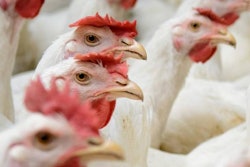
When employees travel for work-related activities, employers often pay for meals purchased while the employee is on company time.
Yet an employer should have the right to deny an employee request for a meal if something questionable is on the ticket. For instance, if an employee charges an excessively expensive meal, saying no is understandable. It is also understandable if the meal includes an alcoholic beverage in situations that are inappropriate.
But have you ever heard of a company saying it won’t pay for an employee meal if that meal contains meat or poultry?
Believe it or not, it’s happening.
According to an Associated Press (AP) report published on Arkansas Online, office space sharing company WeWork has adopted a policy, effective immediately, that stated that the company won’t serve pork, poultry or red meat, and that it also won’t allow employees to expense meals that include such meats.
However, it is still allowing the expenses involved for fish-based meals.
The policy includes locations at 75 cities in 22 countries.
The reasoning behind the policy
According to the AP report, Miguel McKelvey, co-founder and chief creative officer of WeWork, said that in implementing the rule, WeWork could save 10,000 animals alone by eliminating meat at an upcoming summer camp event it hosts. McKelvey also claims that the company will use less water and produce less carbon dioxide with the new policy.
The company did not provide any views on the environmental footprint of the fish industry, or why it was allowed but other meats were not.
Will more policies follow?
It would be interesting to find out more about how this policy was decided upon. Was it created by the minds that run WeWork, or was there an outside non-governmental organization that opposes poultry, pork and beef production that recommended this policy?
Also, we have to wonder if more of such policies will follow from other companies.
I for one hope that this policy will be the only of its kind. While trying to save the environment and save animals can be commendable endeavors, it seems to me that this policy is based on selectively chosen information and tries to push views of a company leader onto other workers.
Sorry, WeWork. To me, that just doesn’t work, and I'm sure there are others who would would agree.


















